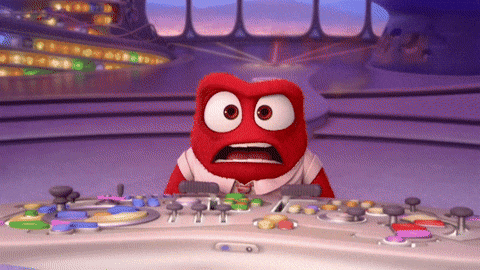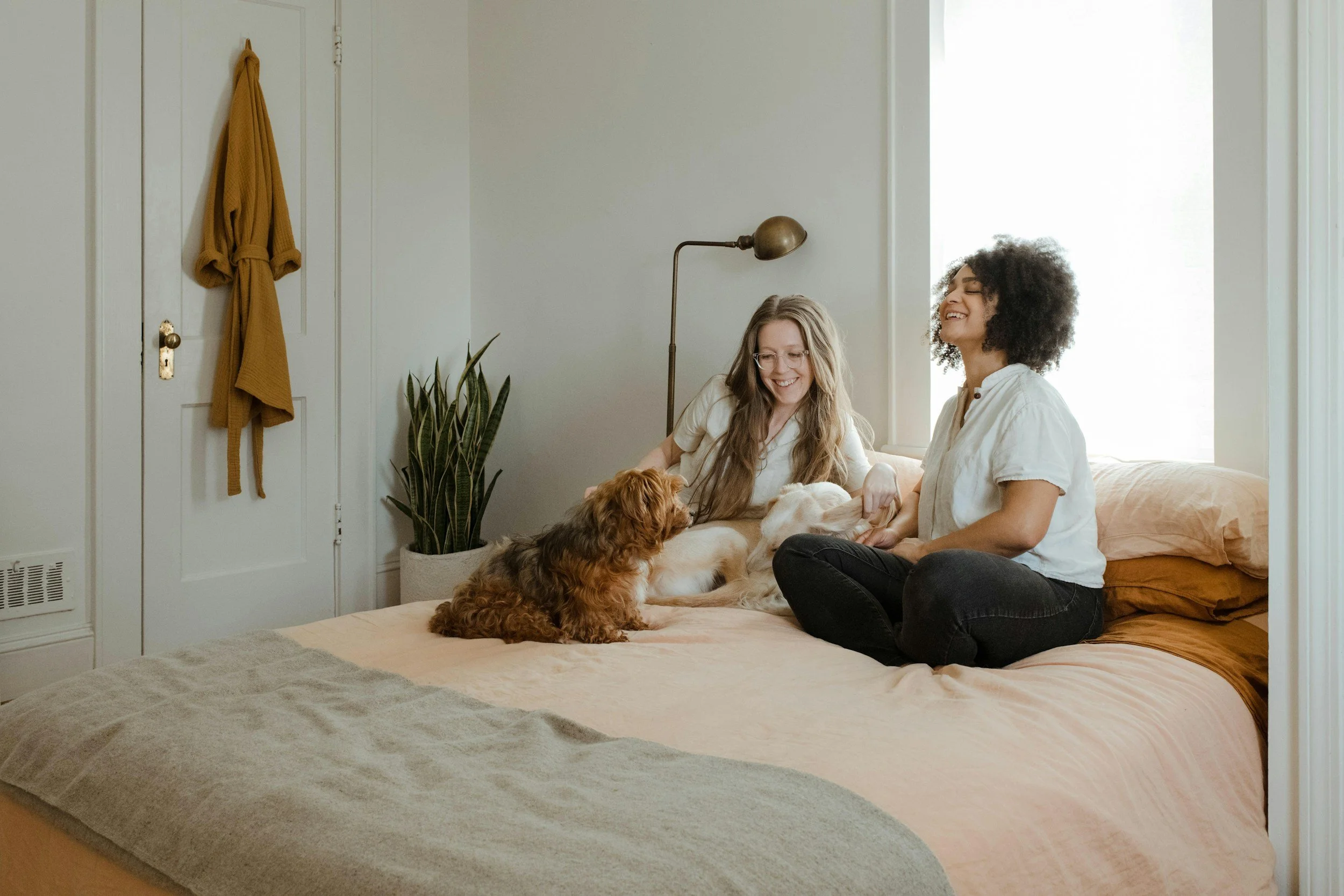Is It Normal To Compare Yourself To Your Partner?
Sabrina Caverly: ‘Comparison can be the thief of joy’
‘Comparison is to consider or estimate the similarities or dissimilarities between two things or people.’
We often think of comparison as a bad thing. And that’s mainly because we compare ourselves to others, and how much we would rather have their qualities over our own. But comparison is a neutral term, with no quantifiers – so it can be both bad, and good, depending on how you frame it.
One of the biggest points for comparison people will have is their partner, and it’s often the cause of arguments, resentment and even break ups. So for this blog I had a chat with Sabrina Caverly, a counsellor turned life coach who helps people stress less and enjoy more. And since relationships is what Courageously You is all about, we wanted to take this chance to open up the floor and ask you all – do you compare yourself to your partner? If you don’t now, have you in the past?
Because this is one of the most common things both myself and Sabrina find comes up time and time again with ourselves, our clients, and with our friends and family. Which means todays post is all about comparison, how it shows up in your relationships, (and at other times in your life as well), and how we can reframe it in a healthy way.
If you’d prefer to listen to our conversation instead, head here to the podcast.
Comparison as Transition
One of the things Sabrina said that really resonated with me was about the early part of her relationship. Just after she got married, she started realising that there were some things her husband did very differently to her. She believed that’s because it’s the people we’re closest to that can see just how human we are - from our family of origin, to our closest friends and our partners. And you have to figure out where you fit in all of that as an individual person. When you’re in a pair, you’re seeing them so much more in-depth than you would see most people, and in much more proximity. So it’s only natural to observe their behaviour and compare it to yours.
“Where do I fit into this as an individual person?”
We also noticed that everyone has their own idea of what things should be like and how things should be done, most of which tends to come from our home environment and how we grew up. When we’re suddenly having to cohabitate and share our lives with someone who didn’t have that same experience, it can be challenging. Things are different, and you have different ideas of how things should be done, or even how you should react to things.
We discussed how these things will change as you grow and mature, both separately and together, and become new people. Because we are never a finished person – but rather someone going through changes, growing and getting older. So you can think you know someone, your dynamic and the way you work together, but there will always be new changes and challenges to navigate. And a big part of navigating those challenges is comparison – both positive and negative. (more on that later).
Comparison in Relationships
The thing about being in a relationship with someone is that they become your closest point of reference. They’re the one you spend the most time with, and the one you know, and who knows you, better than anyone. And so you start to compare yourself to them, which can bring up all of those questions about who you are, whether you’re enough for the right kind of person, and whether you behave in the right way to make them as happy as they make you.
And when you care about someone so much, you think they’re great – so when they have differences, we realised it could be easier for you to think ‘I do this thing differently, or I’m not like them in this way, so what does that say about me?’ It comes from a need to be loved, but the thing we forget is that they often love us because of those differences. After all, no one wants to be in a relationship with a carbon copy of themselves!
“Your partner is your closest point of reference for comparison.”
But both of us have experienced that worry, and how it can bubble away beneath the surface, having a pretty major impact on us and our relationships if we don’t address it in a healthy way. The best way to address it? Be honest! Open conversations with your partner about what’s coming up for you, and what that might mean, can have a huge amount of power. At least, that’s what we’ve seen happen time and time again.
Sabrina gave a brilliant example of this in our conversation. She’s currently staying at home with her children while her partner goes to work every day. And she noticed that when he came home, the kids wanted to play with him, and he seemed to have endless patience with them. While she wanted to get away from them at any possible moment, and they didn’t want to play with her in the same way as her husband. But when she talked to her husband about these comparisons, he was able to reflect back to her. The fact that she was with the kids all day long, where he wasn’t. And that they do play with her, it’s just a different kind of play. This open dialogue has taken a long time to develop, and part of that was done through age, maturity and a deeper understanding of what their feelings really were.
Couples Comparison Post-Children
Sabrina also talked about how having children changed her experience of comparison, and how she thought about it:
‘I have two children - my son is five, almost six, and then I have a seven month old, almost eight month old. And they're both completely different experiences. With my firstborn it was new for both of us, and I was having a very emotional experience. Not only carrying and birthing a child but birthing, but then the child was dependent on me for sustenance. I had a pretty pleasant experience with breastfeeding, so we breastfed for a long time. And that just means that there was no one else to give food to the baby. So, then I would find myself comparing myself to my husband. First with how I was having a very emotional experience – which makes sense with all the hormones coursing through my body.
Then I also felt comparison come up in the form of resentment. I have to do all of this, and it feels like you’re not as invested. But it wasn’t that he wasn’t invested – it was just that at that time in baby’s life, the female (in a heteronormative relationship) will take the majority of the load. But that's what was coming up for me. He’s not in it as much as I am. And I'm also more emotional. And thus, a lot of times when I'd get into the depths of it, it'd be, ‘he is better off as a parent than I am like, I don't have what it takes, because I'm so emotional, and I can’t handle it’. But it was just that I was carrying really, really big load at that time.
With my second child, I had that experience to draw on, but because I gave birth during COVID, there was so much that was different. I had made a conscious effort to find care for my child outside the home with my son, and having that taken away during COVID was really, extremely challenging. And so, I’ve found comparison in other places – in how we’re navigating COVID, and thinking ‘why am I so affected by all of this’.’
“What you bring is just as important and valuable as the things you see and compare in your partner.”
And that’s the thing about emotions – you can know that there’s a practical reason behind the divide, but you can still feel like something isn’t right.
At that point comparison is about dealing with emotions, and what the roots of those emotions are telling you.
But the thing Sabrina realised – and many other parents too – is that parenting is all about what you can bring as a whole unit. Both partners bring the children different things – different pieces - and form the whole puzzle together. That’s what we mean when we say flipping the script on your comparisons can change things – because the things you bring to the table are just as important and valuable as the things you see and compare in your partner.
Do You Compare Yourself in Other Relationships?
The interesting change comes when we talk about friendships, as opposed to relationships. We noticed that when we were younger, we tended to compare ourselves a lot more to our peers, as we’re learning about the world around us and trying to find out place in it. In the teenage years in particular, that’s a really difficult transition to navigate, and comparison plays a big part. But we noticed in our conversation that it’s not as common to compare yourself to your friends in the same way we do with our partners when you’re an adult. Instead, we found that the big comparisons we make outside our romantic relationships tend to come from social media instead.
This is where things get really muddy, because the face people show on social media isn’t really real. It’s posed, filtered and photoshopped to put their best version of life on display. But it’s difficult, especially if you don’t know them in person, to not think of this perfect life as real. And so we compare our non-photoshopped life to this amazingly airbrushed version, and we find ourselves coming up short. It even affects business owners! Sabrina mentioned seeing other businesses pages with more likes, or with picture-perfect social media, and thinking that her efforts weren’t good enough (even though they were).
Comparison as a Part of Life
The thing about comparison is that it will always be there. It’s a natural function of our brains, even if it’s not a very helpful one. So rather than trying to cut out comparison altogether, it can be more helpful to be aware of it.
Being able to recognise when that negative comparison talk is happening, flipping it on its head and figuring out where it’s really coming from can be very healthy, and can help you be much happier and healthier in yourself.
“the fact you aren’t the same as them is a good thing – not a bad one.”
For example, you might start comparing yourself to your partner and think ‘why couldn’t I be more laid back, like him?’.
If you dug into those thoughts, you might find that you’re feeling envious or jealous because that laid back quality is something you appreciate, and want to invite more of.
And when you notice that, you can navigate those feelings and let go of the comparison, and instead start to work out what you need to do to achieve that. And you can learn to recognise that just because someone else thinks their way is right, doesn’t mean it always is. And the fact you aren’t the same as them is a good thing – not a bad one. By flipping the script on that self-talk, you can realise that we’re all bringing our own qualities to the table, and everyone is different.
So, if you want a simple answer to the question ‘is it normal to compare yourself to your partner’ – it’s yes.
And, as Sabrina so eloquently put it ‘comparison can be the thief of joy – but only if we give it permission to be that.’
If we use comparison to celebrate our differences, rather than criticise them, we can all have a little more joy in our lives.
We go into more detail in my latest podcast, ‘Is it normal to compare yourself to your partner’, so if you would like to hear the full conversation, head over to it here and give it a listen!















I help late diagnosed ADHD folk make career and life decisions they trust. ICF Certified Coach, Youtuber & Writer.